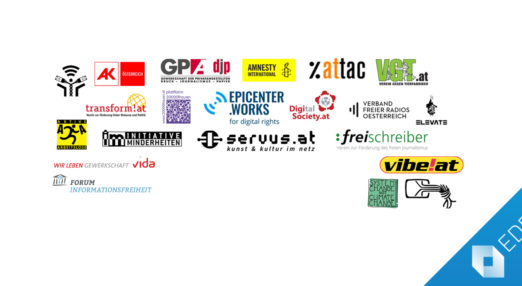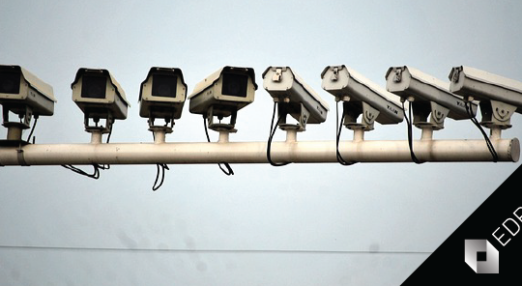Surveillance and data retention
Surveillance is when an individual or organisation is watching, tracking, filtering, analysing or blocking what you can see and do online or offline. It can be targeted on a specific individual (such as someone suspected of a crime) or it can be done indiscriminately (such as on all users from a particular country), also known as mass surveillance. Surveillance - and the retention of surveillance data - can impose restrictions on our fundamental rights in the digital environment by interfering with our freedom online, or by using digital technology to follow our offline movements, in order to gain an intimate picture of our lives, our beliefs and our interactions.
Filter resources
-

EU Member States willing to retain illegal data retention
With its judgments in April 2014 (Digital Rights Ireland ) and December 2016 (Tele2 ), the Court of Justice of the European Union (CJEU) ruled that blanket data retention was illegal under EU law. Rather than repealing their illegal data retention laws, EU Member States have instead adopted a tactic of ignoring the highest court […]
Read more
-

Denmark prepares for passenger data exchange with the EU
In 2016, the European Union adopted the Passenger Name Record (PNR) Directive which obliges Member States to collect PNR data on all flights to third countries and exchange this information with other Member States through the Passenger Information Units (PIUs).
Read more
-

Germany: New police law proposals threaten civil rights
The number of police laws in Germany has increased in recent months.
Read more
-

EDRi members in joint protest against “surveillance zone” in Saxony
A new proposal for a surveillance law in the German state of Saxony is threatening to lead to abhorrent consequences on a stretch of Germany’s international border.
Read more
-

Greece: Clarifications sought on human rights impacts of iBorderCtrl
On 5 November 2018, EDRi observer Homo Digitalis filed a petition to the Greek Parliament about the pilot implementation of the iBorderCtrl project on the Greek border. The Minister in charge will have 25 days to reply to it.
Read more
-

NGOs urge Austrian Council Presidency to finalise e-Privacy reform
EDRi member epicenter.works, together with 20 NGOs, is urging the Austrian Presidency of the Council of the European Union to take action towards ensuring the finalisation of the e-Privacy reform. The group, counting the biggest civil society organisations in Austria such as Amnesty International and two labour unions, demands in an open letter sent on 6 November 2018 an end to the apparently never-ending deliberations between the EU member states.
Read more
-

Brussels up close – Experiences from the EDRi exchange programme
Learning and knowing abstractly how the EU works is one thing, seeing it up close and doing advocacy work right there is quite another! I am a Policy Advisor for the Austrian EDRi member organisation "epicenter.works – for digital rights" and, in October 2018, I spent two weeks with the EDRi office in Brussels. My aim was to get a better understanding of EU law making and advocacy.
Read more
-

New standards for networking challenge regulators & digital rights
On 17 October, the European body of telecommunications regulators (BEREC) organised a stakeholder meeting in Brussels, inviting industry, consumers, regulators and citizens’ rights groups to reflect on the BEREC Work Programme 2019.
Read more
-

CJEU introduces new criteria for law enforcement to access data
On 2 October 2018, the Court of Justice of the European Union (CJEU) delivered a new ruling in the “Ministerio Fiscal” case on access to data retained by electronic communications service providers under the scope the ePrivacy Directive.
Read more
-

EU’s flawed arguments on terrorist content give big tech more power
On 12 September 2018, the European Commission proposed yet another attempt to empower the same big tech companies it claims are already too powerful: a draft Regulation on preventing the dissemination of terrorist content online. The proposal encourages private companies to delete or disable access to “terrorist content”.
Read more
-

ECtHR gives a half-hearted victory against UK mass surveillance
On 13 September 2018, the European Court of Human Rights (ECtHR) delivered its ruling on the case brought by EDRi members Privacy International, Open Rights Group and other NGOs against the United Kingdom. The Court found several violations of the European Convention on Human Rights in three UK mass surveillance programmes. The Court’s judgment is […]
Read more
-

Five reasons to be concerned about the Council ePrivacy draft
The amendments improve the original proposal by strengthening confidentiality requirements for electronic communication services, and include a ban on tracking walls, legally binding signals for giving or refusing consent to online tracking, and privacy by design requirements for web browsers and apps.
Read more
